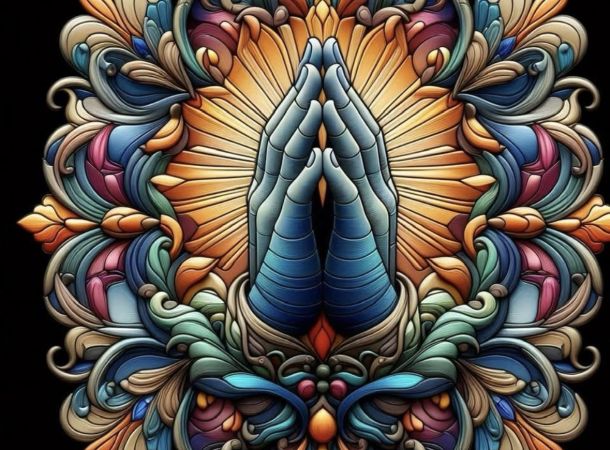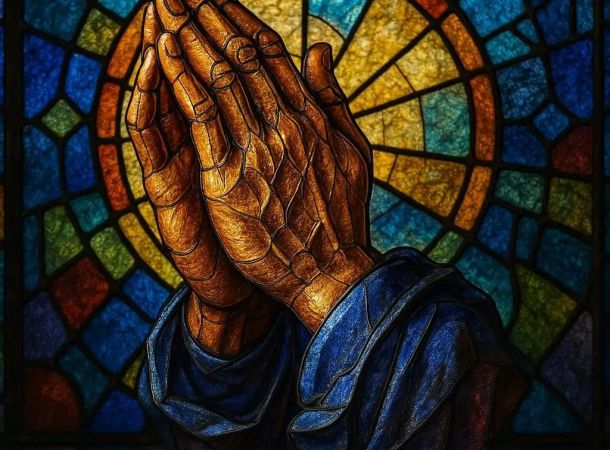Vayetzei (And He Left)
We are now in Genesis chapters 28-32 for this week’s Torah Portion. Jacob enters the scene. His name means “supplanter or heel.” Not a very glamorous name, but it is better than his brother Esau’s name, which means “hairy.” Attractive, right? Ok, so Jacob becomes the new Adam in our pattern.
One Day-Once again, we find the word ‘abar meaning “pass-through,” just like the Ruach passed through the waters on the first day and again in the re-creation pattern of Noah’s and Abraham’s day.
“Let me pass through (‘abar) all your flock today, removing from there all the speckled and spotted sheep, and all the brown ones among the lambs, and the spotted and speckled among the goats, and these shall be my wages.” ~Genesis 30:32
The other two words connecting us to day one are heaven and earth (Gn 1.1). Jacob has a dream where a ladder links heaven and earth. Here is Jacob’s life-altering interaction with the Creator of heaven and earth.
“And he dreamed, and behold a ladder set up on the earth, and the top of it reached heaven, and behold the angels of God ascending and descending on it.”~Genesis 28:12
Second Day– Jacob passes through the flock and separates the spotted from the speckled sheep, lambs, and goats. Per a Priest’s job, he divides between clean and unclean, ordinary and holy.
Third-Day– Remember that tree kingdoms can be synonymous with a House or dwelling place. Jacob names the place where he meets with God, Bethel, meaning House of God, whereas its original name, Luz, means almond tree. Boom chakalaka, this is third-day imagery.
“And he called the name of that place Bethel (House of God), but the name of that city had been Luz (almond tree) previously.”~Genesis 28:19
Fourth Day–
“And all the souls that came out of the loins of Jacob were seventy souls; for Joseph was in Egypt already.”~Exodus 1:5
In Exodus 18:25, the elders of Israel are called rulers. There were seventy of them, plus Moses equals 71, just as seventy souls came out of Jacob plus himself, which equals 71. The stars established on the fourth day could symbolize the rulers of Israel. The rulers placed in authority on the fourth day had the high calling of establishing righteousness and justice, reflecting the Light of the Torah.
Fifth Day– Jacob is multiplying after his kind by bringing his whole household into covenant, pointing us to the fifth day.
“And Jacob said to his household and to all who were with him, “Put away the foreign gods that are among you, purify yourselves, and change your garments.”~Genesis 35:2
Sixth Day– The commandment given to Adam on the sixth day of creation is to be fruitful and multiply (Gn 1:28). This commandment is repeated in the re-creation narrative of Noah (Gn 9:1) and again here with Jacob.
“Also, God said to him: ” I am God Almighty. Be fruitful and multiply; a nation and a company of nations shall proceed from you, and kings shall come from your body. The land which I gave Abraham and Isaac I give to you; and to your descendants after you, I give this land.”~Genesis 35:11-12
In all the patterns, God is looking for a human who will use wisdom and understanding to divide between good and evil, dwell in the correct kingdom, and internalize its truth. He wants a human who will make the right choices and do justice—a human who will spread love and multiply the image of God in the world. Jacob had to wrestle with his earthy nature, the earthy nature of other humans around him, and finally, with God Himself. His life of struggle produced perseverance in him. The fact that Jacob overcame led God to rename him Israel.
“And He said, “Your name shall no longer be called Jacob, but Israel; for you have struggled with God and with men, and have prevailed.”~Genesis 32:28




Leave a Reply